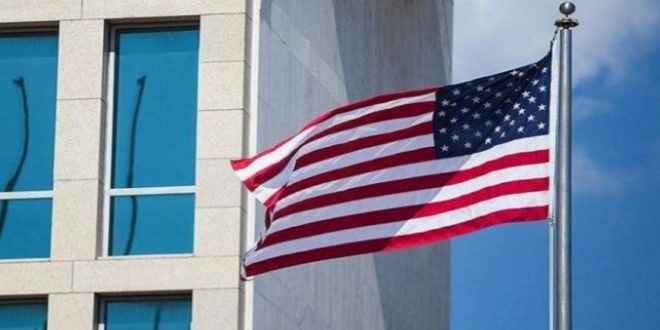The US State Department expressed “disappointment” at the lack of “any progress” in indirect talks held between it and Iran since Tuesday in the Qatari capital to revive the 2015 Vienna deal on Iran’s nuclear program.
“The indirect talks in Doha have ended” and “we are disappointed that Iran has once again refused to respond positively to the EU initiative and therefore no progress has been made,” a State Department spokesman said.
He added that the talks failed because “Iran has raised issues unrelated to the Joint Comprehensive Plan of Action (the official name of the 2015 agreement) and does not seem ready to make a significant decision about whether it wants to revive the agreement or bury it. .”
The US official’s statement came shortly after the European Union’s coordinator for Iran talks, Enrique Mora, said the Doha talks had not produced the “progress” the union hoped for.
“Two intense days of indirect talks in Doha,” Mora tweeted on Twitter, accompanied by a photo of him meeting with Islamic Republic chief negotiator Ali Bagheri.
“Unfortunately, this has not yet resulted in the progress that the EU team hoped for. We will continue to work with even greater urgency to restore an agreement that serves nuclear non-proliferation and regional stability,” he added.
Earlier, Tehran reported that the indirect talks, which began on Tuesday, will last two days.
The United States withdrew from the Iran nuclear deal under former President Donald Trump and re-imposed economic sanctions on Tehran. In response, Iran began backtracking on many of its core commitments, most notably its uranium enrichment commitments.
The administration of President Joe Biden is keen to return to an agreement, seeing this as the best path with the Islamic Republic, despite growing pessimism expressed in recent weeks.
Negotiations in Vienna made progress that brought the parties closer to an agreement, but have stalled since March, with differences remaining between Tehran and Washington, especially over Tehran’s demand to remove the name of the Iranian Revolutionary Guards from Washington’s approved list of “foreign terrorist organizations” .
Iran also renewed the US demand for guarantees that Washington’s withdrawal from the agreement will not be repeated.
The Biden administration says that removing the Islamic Revolutionary Guard Corps from the blacklist – a move that is sure to anger many members of Congress – is outside the scope of negotiations to restart the nuclear deal.
According to EU spokesman Peter Stano, the Doha talks do not replace the Vienna talks, but rather aim to resolve outstanding issues between the US and Iran to ensure progress in other talks with major countries.
Indirect talks were held in Doha with a US delegation led by US Special Representative to Iran Robert Mulley and took place on the eve of Biden’s upcoming visit to Saudi Arabia in the middle of next month.
And the US State Department announced earlier on Wednesday: “We are ready to conclude and immediately implement the agreement we agreed to in Vienna to mutually return to the full implementation of the Joint Comprehensive Plan of Action.”
But for this, “Iran needs to decide to abandon its additional requirements that go beyond the JCPOA,” that is, the nuclear deal.
Iranian officials have previously said they hope to make progress in Qatar.
“We hope to reach a positive and acceptable agreement if the United States abandons the Trump method, which was not in accordance with international law,” said Iranian government spokesman Ali Bahadori Jahromi.
“We are serious and in no case will we cross our red lines,” Iranian news agency IRNA quoted Iranian Foreign Minister Hossein Amir Abdollahyan as saying in the Turkmen capital Ashgabat on Tuesday.
According to the Iranian minister, “if the American side is serious and realistic, there is an agreement at this stage and in this round of negotiations at the political level.”
Source: El Nashra
